The UPU’s Knowledge Centre and Think Tank Unit was created to generate cross-thematic, future-focused, knowledge products that are much needed by the global postal sector to ensure a robust and sustainable universal postal network.
This quarterly series of UPU Think Tank Briefs are intended to support postal decision-makers with the knowledge and policy focused guidance they need to meet the needs and expectations of tomorrow’s postal customers and stakeholders.
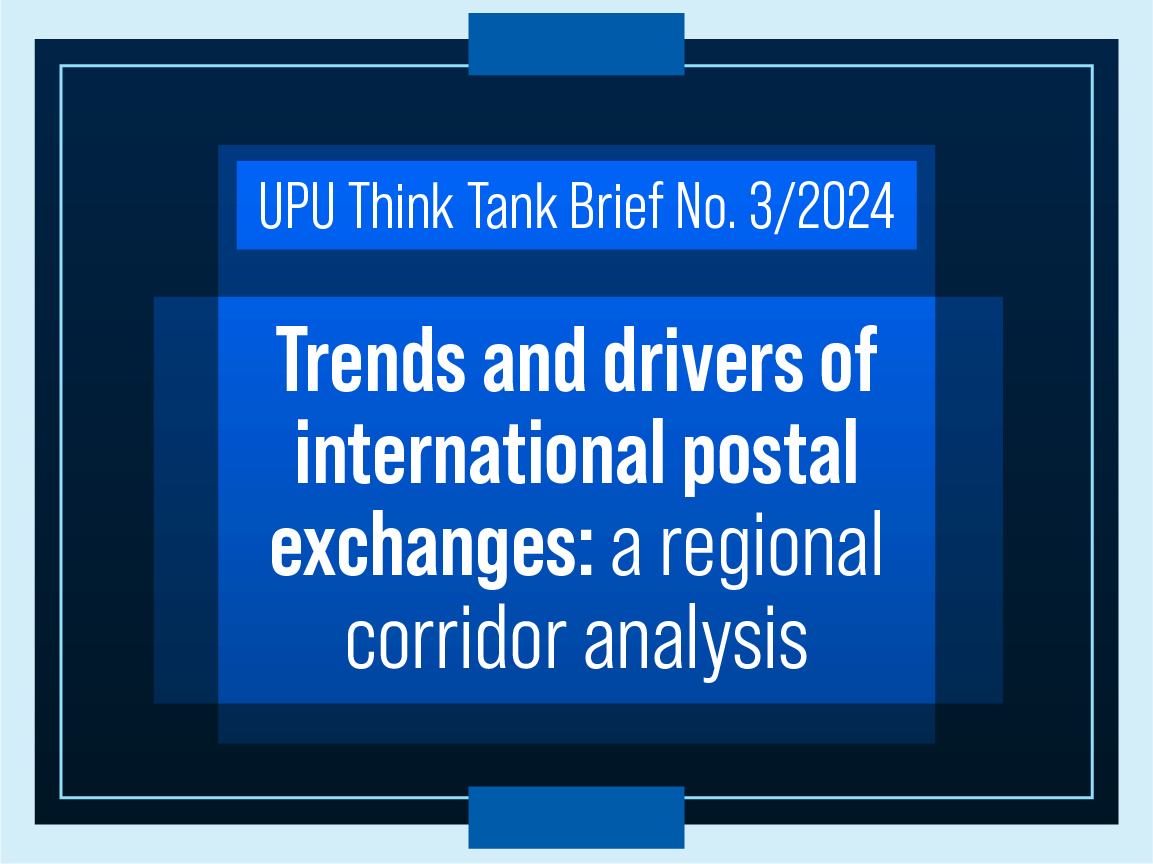
Trends and drivers of international postal exchanges: a regional corridor analysis
21.01.2025 — The COVID-19 pandemic profoundly reshaped international postal services, disrupting supply chains, shifting consumer behaviours, and accelerating digital transformation. Combined with changes to postal remuneration and new border and customs regulations, these factors significantly impacted postal volumes and operations. This UPU policy brief analyses these challenges, offering data-driven insights into the evolving dynamics of cross-border mail and parcel flows.
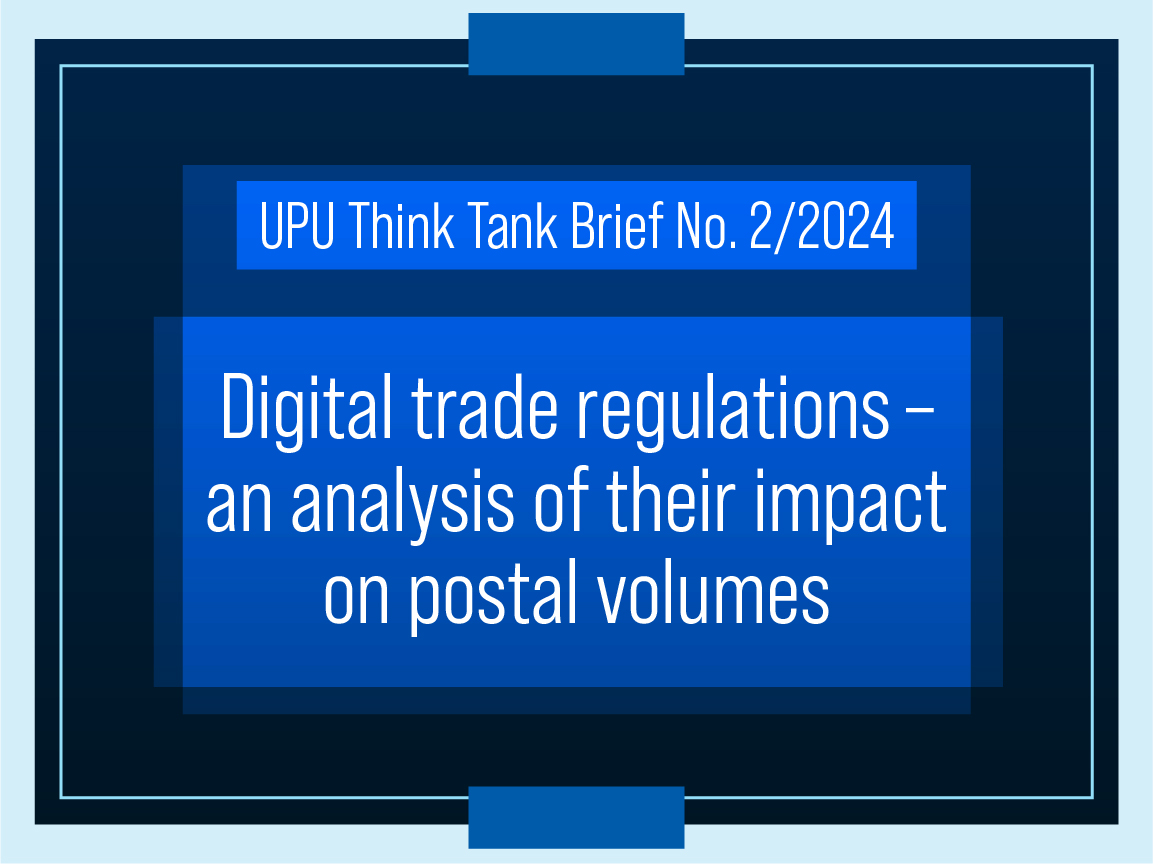
Digital trade regulations – an analysis of their impact on postal volumes
15.11.2024 — This policy brief focuses on physical digital trade, specifically the cross-border e-commerce of tangible goods ordered through digital platforms. It examines the impacts of preferential trade agreements (PTAs) with digital trade provisions on cross-border e-commerce, with particular emphasis on their implications for designated operators and policymakers.
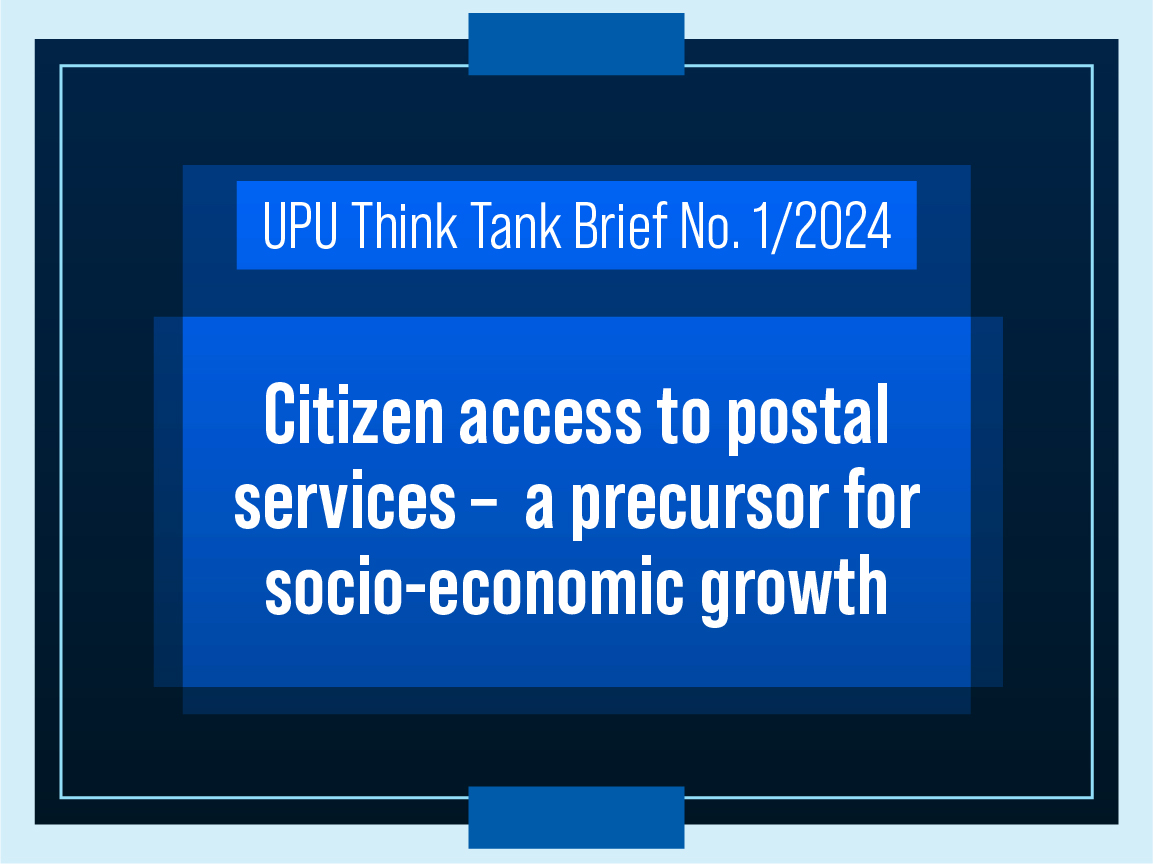
Citizen access to postal services – a precursor for socio-economic growth
20.09.2024 — The analysis presented in this policy brief goes beyond the economic factor to show that the postal sector also makes a significant contribution towards the achievement of national SDGs.
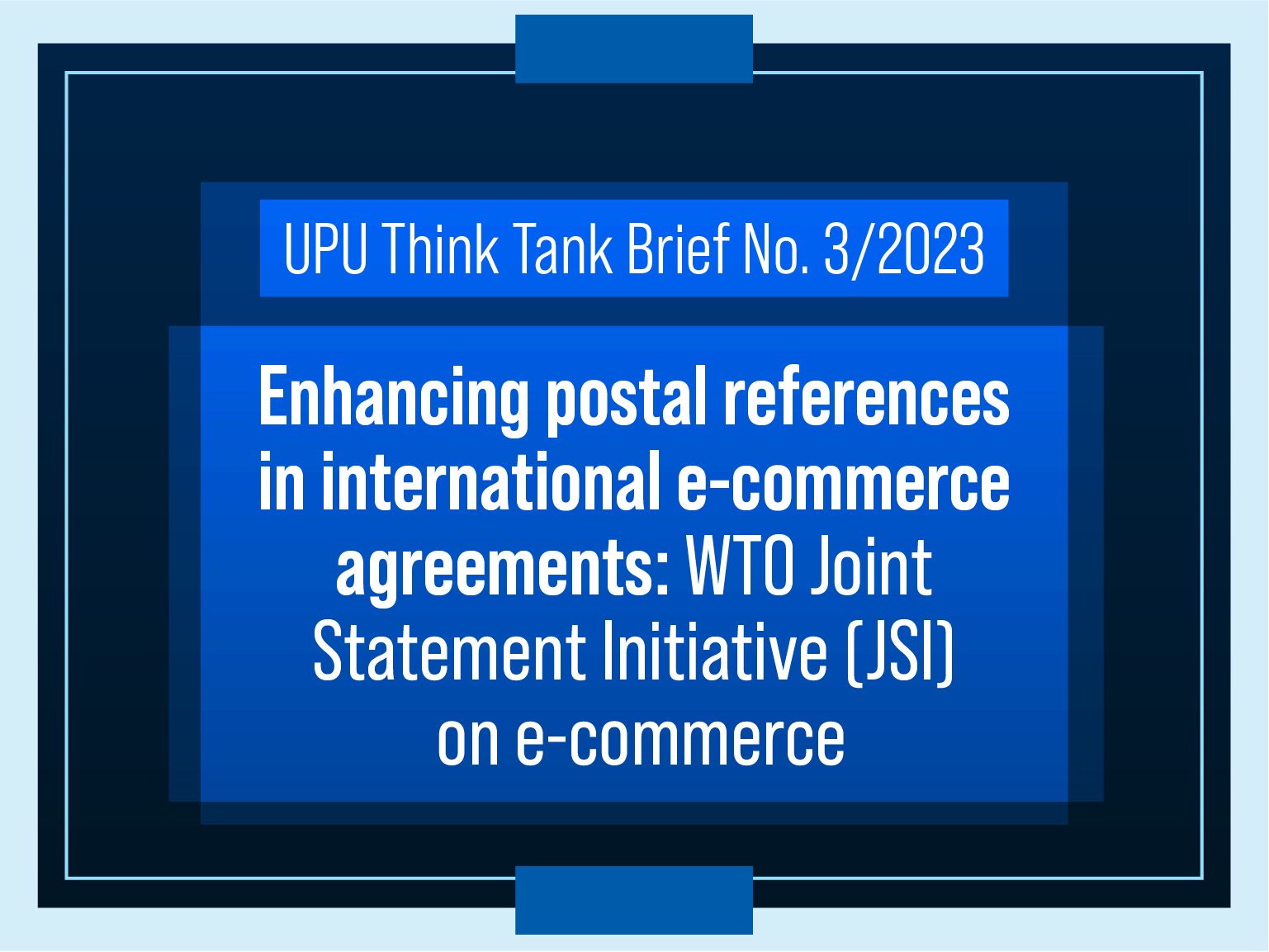
Enhancing postal references in international e-commerce agreements: WTO Joint Statement Initiative (JSI) on e-commerce
04.12.2023 — This policy brief explores the main topics covered in the World Trade Organization (WTO) joint initiative on e-commerce negotiating text. It also discusses the contribution of the postal sector to e-commerce and the trade inclusion of micro, small and medium enterprises (MSMEs), women and underrepre-sented communities, and highlights ways in which the postal sector can enhance its role in the implementation of the WTO joint initiative on e-commerce by providing recommendations that members could consider for inclusion in the negotiating text.
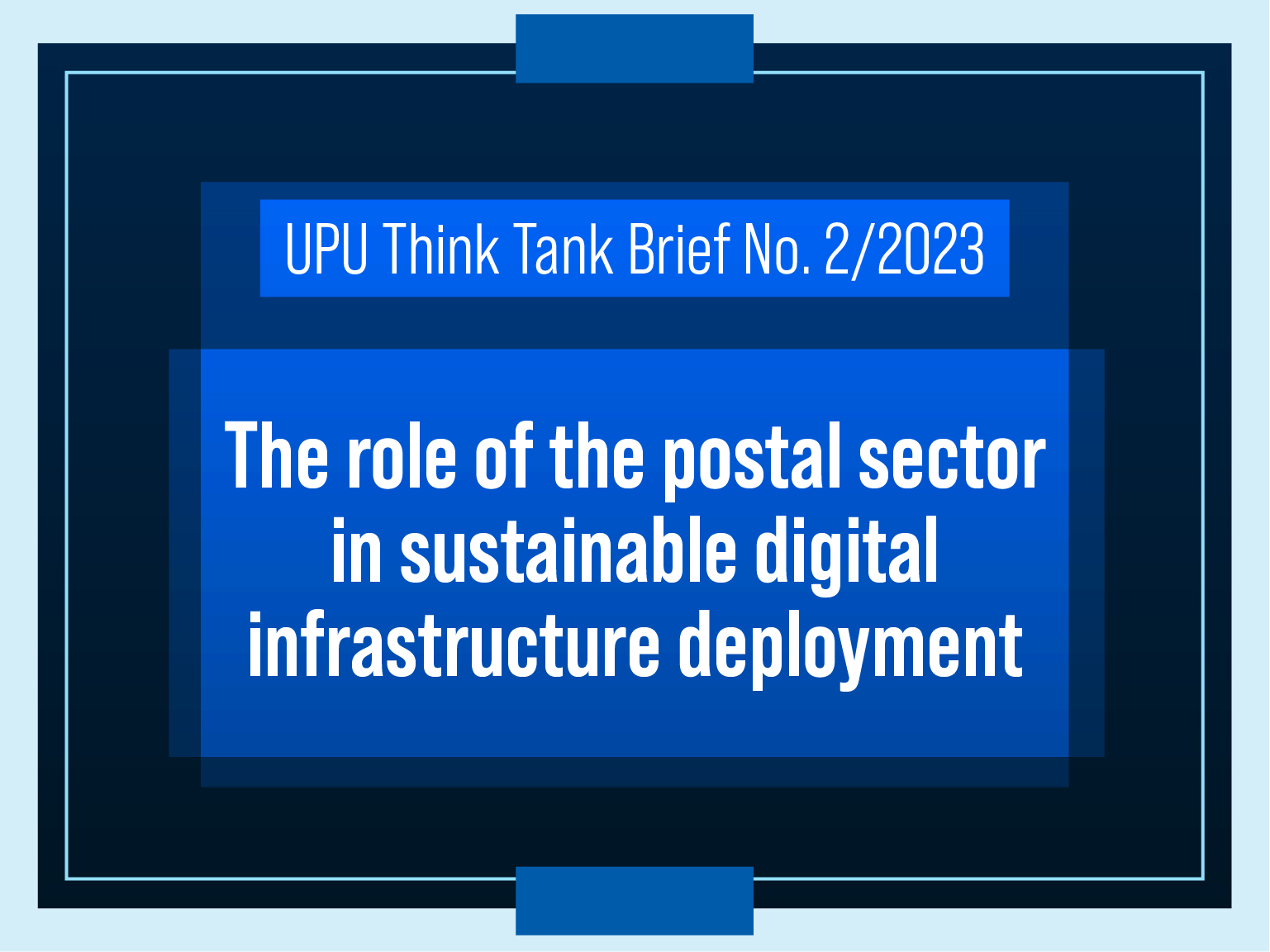
The Role of the Postal Sector in sustainable digital infrastructure deployment
04.12.2023 — This policy brief proposes a set of concrete areas of collaboration to enhance current strategies and foster cooperation though different frameworks, in order to accelerate the full realization of opportunities for an inclusive and sustainable digital economy. This, according to our analysis, can be achieved by utilizing national postal infrastructure, under the oversight of the relevant regulatory authorities.
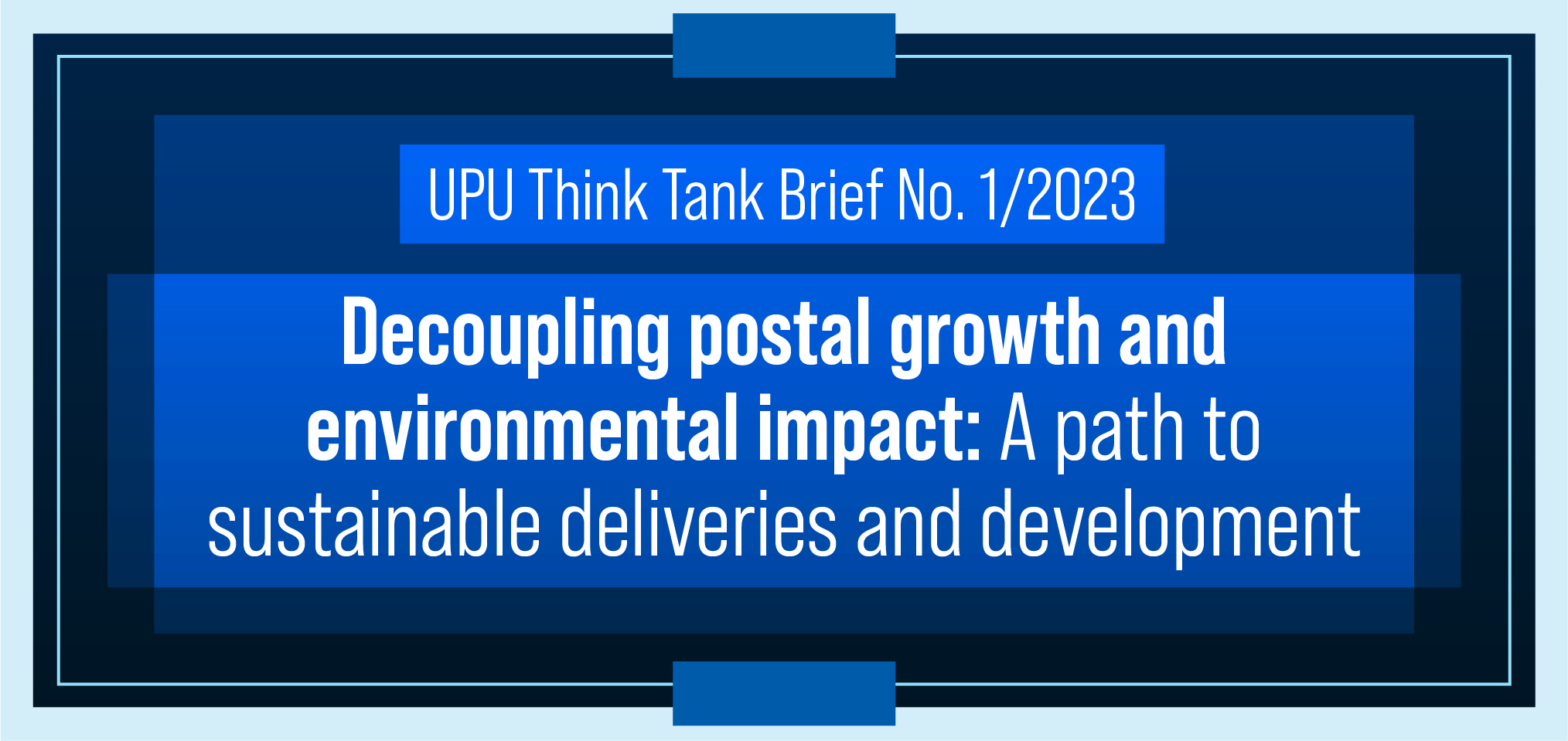
Decoupling postal growth and environmental impact: a path to sustainable deliveries and development
14.08.2023 — This policy brief explores the potential for, and the economic implications of, “decoupling” the global postal sector, which is a contributor to global CO2 emissions. It also discusses the types of decoupling and the need for better postal decoupling outcomes, namely for absolute declines of CO2 emissions in spite of growth in parcel-post activity (strong decoupling), or lower than-proportional emissions increases (weak decoupling) effectively responding to climate change.